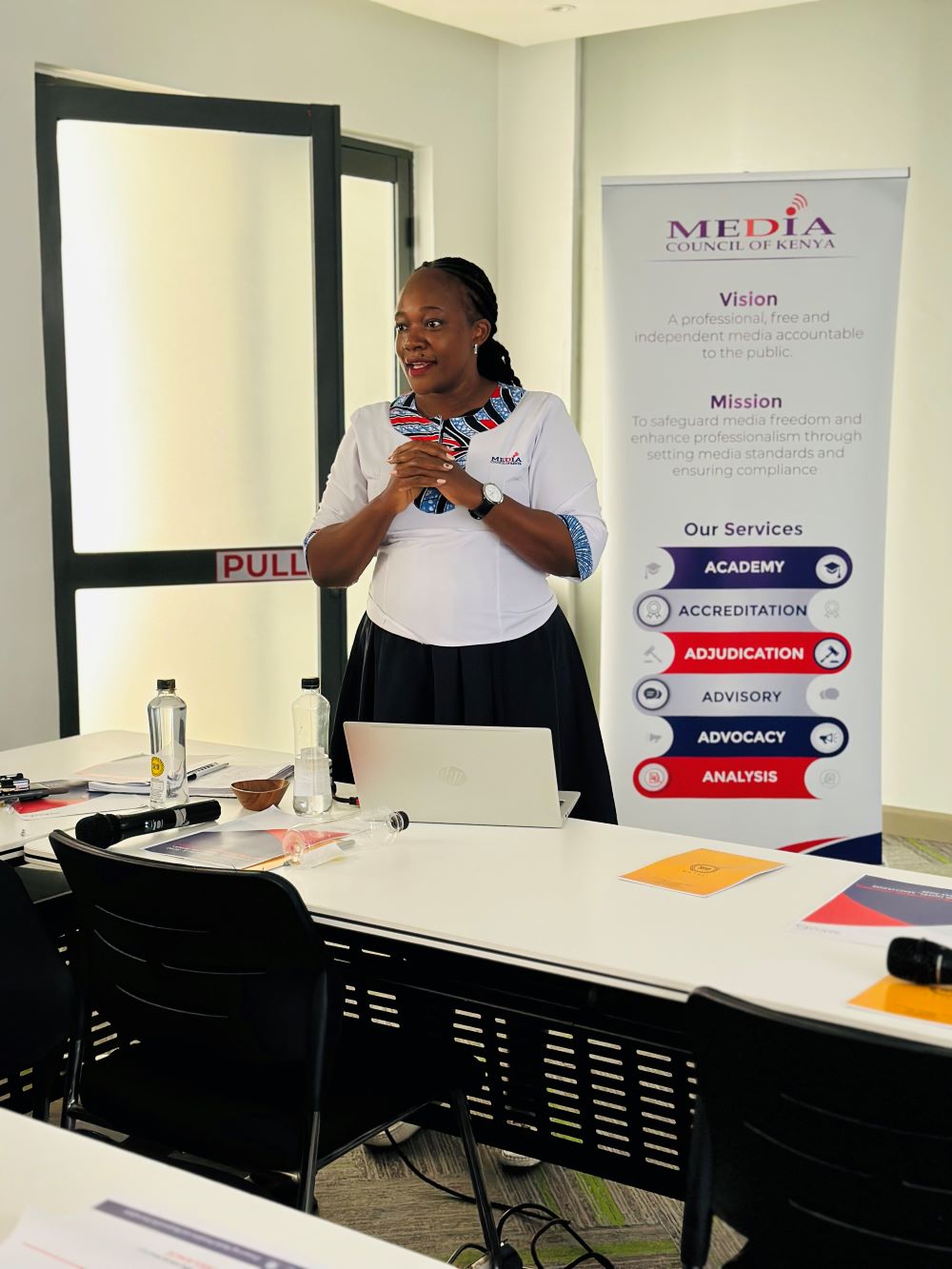
The Media Council of Kenya (MCK) has stressed the need for journalists to maintain professionalism by exercising ethical conduct to safeguard against misinformation and strengthen public trust in the media.
MCK Director for Media Training and Development Victor Bwire said the evolving digital landscape calls for a redefined approach to journalism that integrates innovation, responsibility, and a deeper understanding of media laws and ethical standards.
“Journalists must understand the consequences of misinformation, uphold ethical standards, and be proactive in tackling emerging threats to press freedom and safety,” he said during a media practitioners training in Machakos.
Mr Bwire alluded to the significant disruption being witnessed resulting from digital migration, audience fragmentation, and low public trust, saying that it can only be addressed through deliberate professionalism and content credibility.
“Digital migration not only opened new opportunities but has also introduced new threats. Journalists must stay ahead by investing in continuous learning and taking personal responsibility for the credibility of their work,” he said.
He urged journalists to familiarise themselves with the Code of Conduct for the Practice of Journalism in Kenya, remain objective, and approach their work with commitment and self-drive.
MCK Assistant Director, Training and Curriculum Development, Christine Nguku, highlighted the role of structured mentorship in shaping future-ready journalists and the importance of discipline in the newsroom.
She asked the media practitioners to explore new storytelling formats, such as podcasts and to create platforms that elevate underreported stories.
“Journalism is not just a job, it’s a calling that requires self-discipline, emotional intelligence, and deliberate effort to adapt to the fast-changing media ecosystem,” she said.
MCK Media Monitoring and Research Manager Dinnah Ondari called on journalists to be intentional about inclusive reporting and to avoid stereotypes, particularly when covering marginalised communities.
“Media content must reflect diversity and inclusion, and journalists must ensure they are not perpetuating stereotypes or misinformation, especially in marginalised regions,” she stated.
Ms Ondari encouraged journalists to steer clear of sensationalism and instead adopt a reflective approach to storytelling that supports national development and social cohesion.
MCK Senior Officer, Research, Planning and Strategy Jacob Nyongesa, emphasised the importance of responsible content creation, especially in digital spaces where misinformation and disinformation thrive in.
“Understanding your audience is key to delivering impactful journalism. Use feedback constructively and always assess the purpose behind your content,” he said.
He called on the journalists to maintain professional boundaries, seek personal growth, and embrace innovation in their reporting methods to remain relevant and impactful.
The training brought together journalists from across the Ukambani region and focused on newsroom leadership, digital journalism, ethical reporting, media law, and the evolving challenges in the information ecosystem.